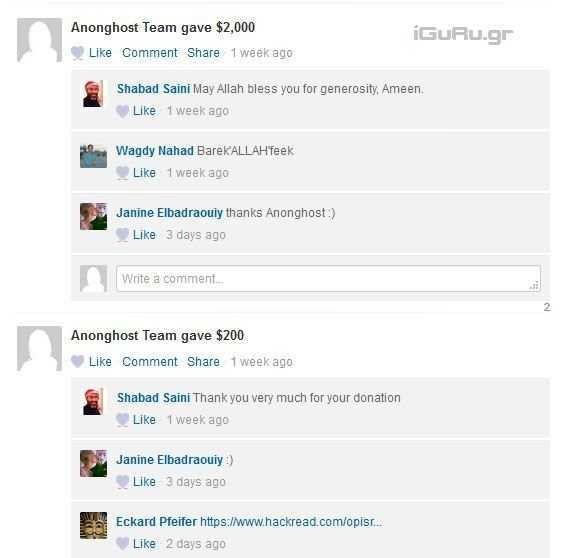A team hackers, known as AnonGhost is allegedly funding Palestinian charities with money he has stolen from credit cards belonging to citizens of Israel. The pro-Palestinian group is well-known in the past for attacks it has carried out on American and British websites. 
The financial elements of the cards that hackers have in their hands were gathered naturally by hacking activities on different websites. Contributions by AnonGhost is part of the Anonymous #OpIsrael campaign that has been running since April 7 at Internet.
Although they are not part of Anonymous's anti-racist group, AnonGhost has helped enough in attacks on Israel publishing large lists of e-mail credentials and Facebook accounts allegedly belonging to Israeli citizens.
In addition to this, on April 7, the group leaked publicly on the internet a list of credit card information to prove the results of their hacking attempts.
At the end of the list that they leaked, AnonGhost announced that they have more credit cards, but do not disclose them to the public. Instead of revealing the cards, they saw fit to use them for charity in the form of donations to Gaza services, or friendly-Palestinian organizations.
According to The Daily Dot, the leader and founder of the group Mauritania Attacker, said they have already paid to Palestinian charities around 18.000 dollars from the stolen credit cards of Israeli citizens.
Donation receipts (2 different donations with 2.000 and 200 dollars) were published on the fund raising page of the organization Keeping The Children Of Gaza Alive.
See the proofs in the picture below.






